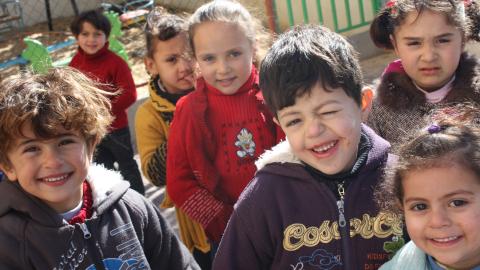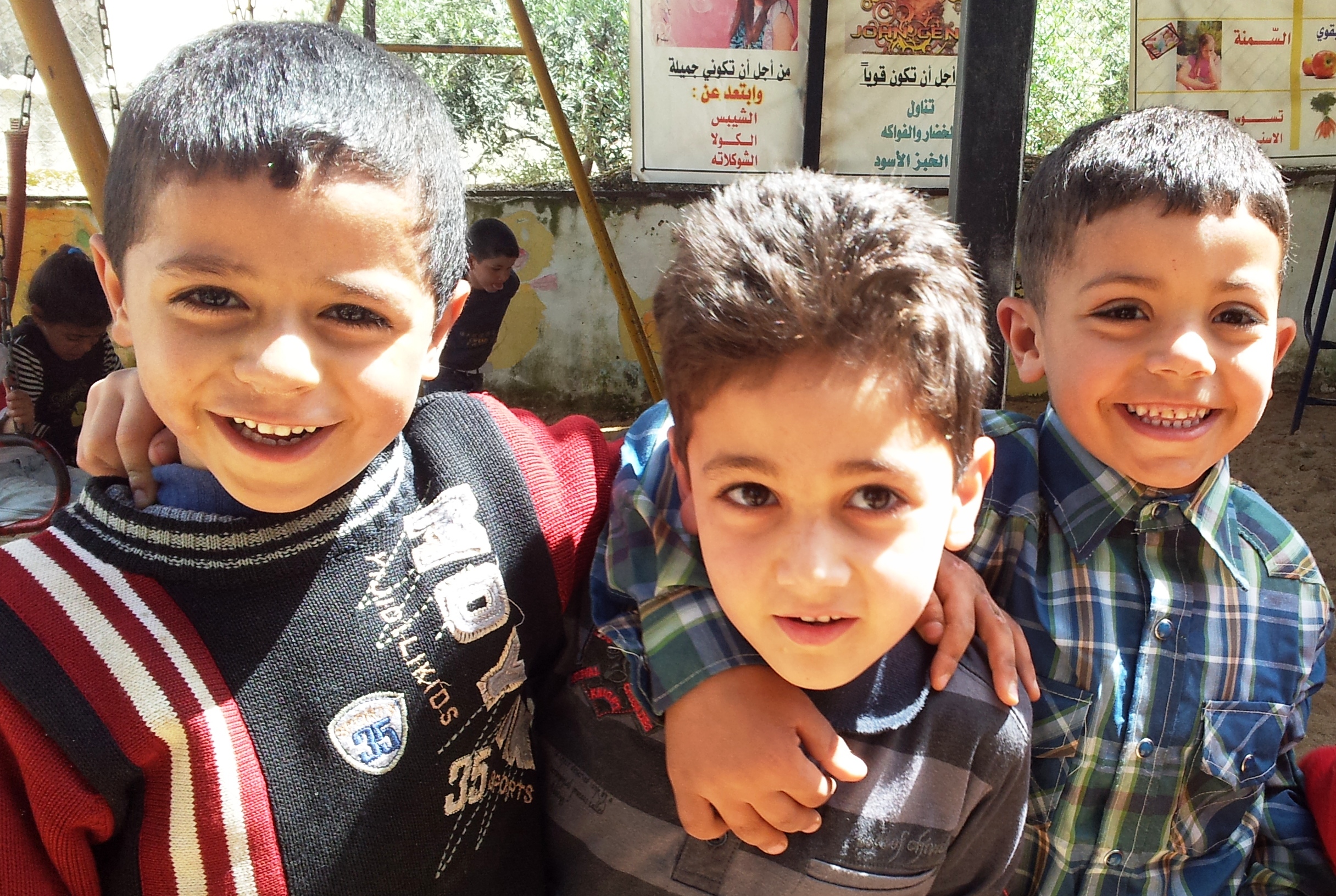
East Nablus ADP
Villages ADP Located In: Azmout, Deir Al Hatab, Beit Dajan, Salem, and Beit Furik
No. of Registered Children: 1,955
No. of Direct Beneficiaries: 17,792No. of Indirect Beneficiaries: 23,749
No. of Communities Served: 5
No. of community-based organisations and/or schools/kindergartens Served: 37
Total No. of staff: 11 fulltime staff members in the North, East, and Centre Nablus ADPs
Support Office: World Vision Canada
WHERE WE WORK
In the northern part of the West Bank lies the 605 square kilometre (almost 234 square miles) governorate of Nablus. With 321,103 people, the Nablus governorate lies in a narrow valley between two mountains with the Jordan River to its east and Jerusalem to the south.
Poverty and unemployment is a real concern for the residents of East Nablus. The unemployment rate of 54 per cent., Residents also suffer from inadequate educational and health care systems. Many of the village residents are forced to rely on the services available in the city of Nablus. The city of Nablus is located in an area under Palestinian Authority (PA) civil and security control. Many of the villages within the East Nablus ADP, however, fall into areas under joint Palestinian and Israeli control or full Israeli civil and security control.
Among the challenges these villages face, the surrounding political situation further exacerbates the quality of life for families and children in East Nablus. Two Israeli military checkpoints separate villagers from the main city of Nablus. In addition to building permit restrictions, land confiscation, neighbouring illegal Israeli settlements and violence by settlers, movement restrictions and periodic road closures also hinder life. These restrictions affect almost all aspects of life for Palestinian families and children in the area. The protection and care for children living in in these communities, their families and their schools is of utmost concern in these areas.
WELL-BEING OF CHILDREN
World Vision has worked in the eastern section of the Nablus governorate through its East Nablus Area Development Programme (ADP) since 2009 and currently works in five village communities working with the poor and most vulnerable. World Vision’s goal is to ensure the sustained well-being of children and the fulfilment of their rights within their families and communities. World Vision seeks to promote the importance of children’s roles in their families and communities where they are respected participants in decisions that affect their lives.
ENJOY GOOD HEALTH
One of the main focuses of World Vision’s work in Eastern Nablus is working towards good health for all children. This includes guaranteeing that all children are well nourished and protected from: infection, disease, and injury. Through awareness programs on proper nutrition practices, World Vision works with mothers and grandmothers in east Nablus to safeguard their generation’s health. World Vision also works with its partners to improve access to potable water as well as water management and safety for its communities.
The ADP rehabilitated drinking fountains and provided water sterilization supplies for three different schools. They also conducted awareness sessions on water management and safety guarantee that contribute to children enjoying a healthier school environment, including reducing the percentage of child diseases especially diarrhea. Lina Sabaaneh, the headmistress of the Deir Al Hatab School, explained the positive impact of the above mentioned interventions on her students’ health, “A relatively large number of girls used to come to me complaining of stomach-aches.” Sabaaneh said, “Recently and after the old rusty water fountain has been rehabilitated and the water connections has been renewed, this number has drastically decreased.”
LEARNING FOR LIFE
World Vision continues to prioritize children and make sure they are educated for life. In East Nablus, World Vision is working to rehabilitate schools and kindergartens and conduct training for teachers and psychological counsellors. In addition to distribution of educational tools, open days and learning activities for children are also offered to allow children the opportunity to be empowered and become agents of positive change in their own lives.
In an effort to provide add a vital component of the education equation for students to school education, ENADP implemented Fun and Learn activities in two villages: Azmout and Salem in FY13.
These activities sought to improve the reading, writing and arithmetic skills of students by integrating these activities within the school curriculum. Fun learning methods have been adopted to teach student their mother language (Arabic) and math skills in addition, educational tools have been provided to assist students in learning these essential skills.
Sixty students from both genders have been targeted. They were all with poor academic performance. A group of six teachers well trained on providing fun and learn sessions worked extensively with these students during their weekends. The impact was clear and evident.The students’ marks in Arabic and Math have been drastically improved as shown in the school’s records. The marks average was raised from 81% in the first semester to 87% in the second semester in Arabic subject and from 79% to 86% in Math.Qadri, Arabic teacher from Salem School explained, “I have been teaching Arabic for 15 years now, but I enjoyed teaching for the first time after adopting this teaching method”, “the students interaction was remarkable and encouraging for me to continue this way” Qadri added.
CARED FOR LIFE
With its child-focused approach, World Vision prioritizes children, especially the poorest and most vulnerable, to ensure they are cared for and that their communities and families are empowered to improve their well-being. World Vision continues to do exactly this in Eastern Nablus through awareness workshops and training courses. World Vision focuses on empowering women and children to transform their own lives. Through income generating projects, the East Nablus ADP equips farmers with the necessary tools and skills to improve their lives, as well as the lives of their children and families. The construction of public parks and opening of summer camps and sports days also allows children the freedom and space to explore and develop in a safe and caring environment.
A SHARED FUTURE
World Vision Jerusalem-West Bank-Gaza seeks to impact the lives of over 200,000 children through its programmes and directly benefits the lives of over 168,000 people in 116 communities throughout the occupied Palestinian territory. Through its Area Development Programmes, World Vision works with 500 community-based organizations and schools to empower families and children to become agents of change for a better future. World Vision seeks to ensure that all families and children are cared for, protected and participating.
Sources:
1) Palestinian Ministry of Agriculture, 2008, www.moa.gov.ps
